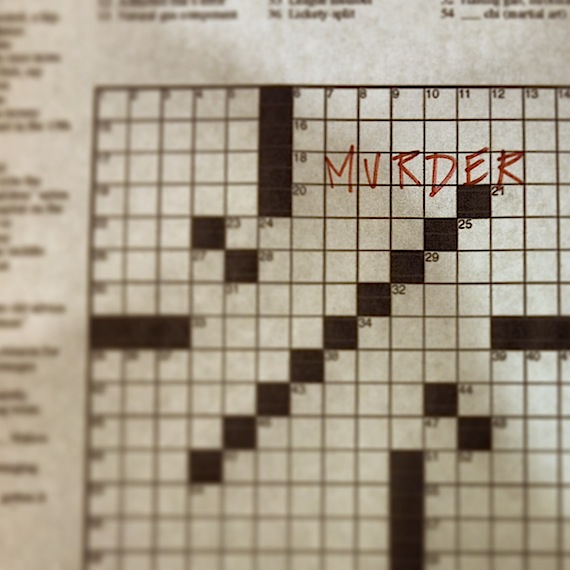
Will Shortz is best known for editing The New York Times crossword, but over the last decade he has quietly developed a cult following as a mystery writer. In books such as Life: Abbr., The Man Who Used Pen, To Smite (Colloquially), Death in an Early 10th Century Year and The Butler Did It: A Monday-Level Whodunit, Shortz’s ingenious plot constructions have left readers forever one clue behind.
His latest, Across the Styx, Down to Hades, doesn’t disappoint. It tells the story of a Midwestern couple, Erle and Eve Ott, who take it upon themselves to stop a psychopathic crossword constructor hunting down his fellow puzzle-makers. The opening is vintage Shortz:
Erle Ott lived in the birthplace of famed aviator Amelia. He was working on the Thursday crossword, which rested atop the literary life(?) of an Eastern potentate. The clock showed CST, and the radio was tuned to the airer of “Prairie Home Companion.” Erle asked his palindromic wife, “Who won the best director in 1996?” Eve’s response, “Do you have any letters?” set in motion a chain of events that would lead the couple ESE to hell.
The crossword in question is a so-called “rebus” puzzle in which certain squares contain multiple letters or a symbol. But these are no ordinary theme answers. Finding the hidden squares could reveal the victim and location of the next murder, and thus after checking the local airport’s ETD’s and boarding an SST, which Shortz helpfully informs us is a bygone flier, the Otts set off to stop the mad puzzler.
Stylistically, Shortz is perhaps over-fond of the pun, haphazardly abbreviates words, and is allergic to apostrophes, but no other living author can so seamlessly integrate crosswordese — those rare words that pop up frequently in grids — into a narrative:
Though they were more comfortable with an etui than an epee, the Otts were primed for their blustery adventure(?). The marvels of this whirlwind journey were many, from sipping on quaffs at the palaces of agas (Var.) to scaling a tor-top aerie in Agra, from a poi feast at a jai alai match to the Eero Saarinen-designed house of big name in ambient music, Brian Eno. Their only regret was that they had to leave their pets — a gnu, an eland and two canines, Asta and Odie — at home.
Across the Styx, Down to Hades constructs a world as confounding as a plural clue not ending in an “Ess.” Encountering characters who speak in clichés with words missing, use biblical verb forms, or are obsessed with chemical endings, Central European rivers, and Herman Melville’s lesser novels, the beleaguered solvers are, like us all, at the mercy of Shortz’s linguistic machinations.
As the couple follows the trail of orts to unlock the rebus, they must draw on all of their knowledge — Latin 101 conjugations, French seasons, signers of historical documents, U.S. presidential monograms — to crack the code. Throughout, Shortz’s wordplay is exquisite. A hangman is described as a “mediocre curveballer, perhaps” a certain unprintable act as “Union Jack?”, and a knife as a “kitchen utensil that could be used to slice someone open, at times.” This is a saucier Shortz (more covered in Ragu, say) than we are used to seeing in The Gray Lady’s staid pages.
Shortz is also a master of suspense. Misdirection reigns, especially in the final showdown with the murderer over a game of Boggle:
Headed for a sudden death, Erle and his opponent were tied. In a rash response, he scratched himself. I’m going to strike you, the villainous Esau muttered while deleting a word from his notepad.
But Shortz isn’t merely after cheap thrills. Rather, Across the Styx shows that he is a literary titan whose sensuously involuted prose is reminiscent of abstract poetry:
On the Chi-town rumbler rides the NLer, a hurler likened to title role for Robert Redford, with an arm (to Yves) like Seaver, Glavin and others, his eyes shielded by his…(they may be tinted), an Erse dirge ringing o’er the ebon e’en. Fix prefix? Laugh syllable. Dye again? Recolor me crazy. Part of Caesar’s boast, he orated.
Some have called such a “late style” impenetrable and decadent, longing for Shortz to recapture the lucidity of earlier works like Sudden Follower? and The Murder Suffix. However, one thing is certain: With this latest effort, Shortz proves once and for all that he truly is a “non-PC bartender?” That’s right, solvers, he’s a genius.








